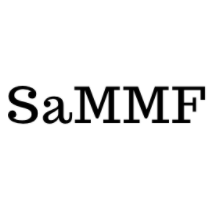SaMMF Lecture Series
The SaMMF lecture series targets PhD students as well as seasoned economists that would like to get more familiar with search and matching applied to macroeconomics and finance. A range of speakers will give one or more lectures based on their classes/research that target a mix of overviews of different topics as well as more technical material. In order to enrich the lecture, we have live attendance to only a limited number of PhD students from different universities. Lectures are recorded and posted on our website and YouTube channel and will be available for anyone to watch. Additional lecture material will also be posted on our website when available.
Most Recent Lecture
Lectures
September 2022 – “Experimental Macroeconomics” by Daniela Puzzello (Indiana University)
Vernon Smith won the Nobel prize in 2002 “for having established laboratory experiments as a tool in empirical analysis, especially in the study of alternative market mechanisms.” Applications of experimental methods are now widespread in microeconomics and finance. Based on the advances and insights gained from this research, in this lecture, we argue a similar approach can provide valuable insights in macroeconomics, especially considering the development of micro-founded models and recent technological advances allowing for the implementation of large-scale economies. This lecture will be organized around:
- the underlying principles of the experimental methodology
- applications of the experimental method to monetary economics.
Examples of research questions that can be investigated using such experimental methods coupled with theoretical models based on micro-foundations include: Under what circumstances is money essential? To what extent do laboratory experiments yield support that monetary policies work as intended and, if not, why? Do legal restrictions and government interventions affect the circulation of multiple currencies? Which bargaining solution/bargaining weight best organize laboratory data in the context of two-dimensional bargaining problems adopted in monetary and labor economics?
June 2022 – “Decentralized-Market Design: Advances and Open Problems” by Marzena Rostek (U Wisconsin)
I will review recent advances in the literature on financial market design. Special focus will be on results and models motivated by new data and new questions concerning the role of market fragmentation and imperfect competition. The lecture will highlight a common analytic framework for static, dynamic, centralized, and decentralized markets. I will discuss open problems.
May 2022 – “Firm dynamics in frictional labor markets” by Simon Mongey (U Chicago)
A long literature has shown the importance of why firms enter and exit, and how firm employment grows and responds to shocks for understanding the productivity of the economy. An extensive literature has also shown the importance of job-to-job mobility for understanding the health of the labor market. This class will offer a summary of recent work that bridges these two literatures, with a focus on the key theoretical objects that determine the partial equilibrium dynamics of workers and firms. We will work with Bilal, Engbom, Mongey, Violante (2022), and Elsby, Gottfries (2021).
Slides – Paper – Replication package
March 2022 – “Dealers and OTC markets” by Nina Boyarchenko (NY Fed)
Dealers play a central role in providing intermediation services in OTC markets. Despite their central role, the literature on understanding how dealers intermediate in a number of markets is still in its nascency, driven partially by limited data available to researchers. This class will offer an introduction to empirical research on dealer intermediation within and across markets for corporate credit risk.
January 2022 – “OTC Market Theory” by Pierre-Olivier Weill (UCLA) and Ben Lester (Philly Fed)
Modern financial markets are fragmented: whether by choice or necessity, investors often trade in Over-the-Counter (OTC) markets instead of all-to-all continuous auctions. Examples of assets that trade mostly in OTC markets include bonds, various types of derivatives, repos and federal funds loans. Over the last two decades OTC markets have been at the center of several pressing regulatory debates regarding liquidity and financial stability. This class will offer an introduction to continuous-time search-and-matching models commonly used to study OTC markets. We will review theory as well as empirical evidence. We will work within a unified theoretical framework, based on Hugonnier, Lester, and Weill (2021).
September 2021 – “Micro Foundations for Macro and Monetary Economics” by Randall Wright (U Wisconsin)
When is it efficient to use money, or other assets, as a payment instruments, either as media of exchange or as collateral for deferred settlement? To discuss this, we need a framework with explicit frictions (e.g., spatial or temporal separation; limited commitment; imperfect information). Institutions like money, collateralized credit, banking, etc. are clearly not captured well by standard GE theory. Search theory is the natural approach because it has agents trading with each other at terms they choose. In this setting we can ask how frictions impede the process of exchange and how the above-mentioned institutions may ameliorate the problem. The claim is that frictions matter for theory, for understanding data, and for policy analysis.
Course description – Slides 1 – 2 – 3 – 4 – 5
